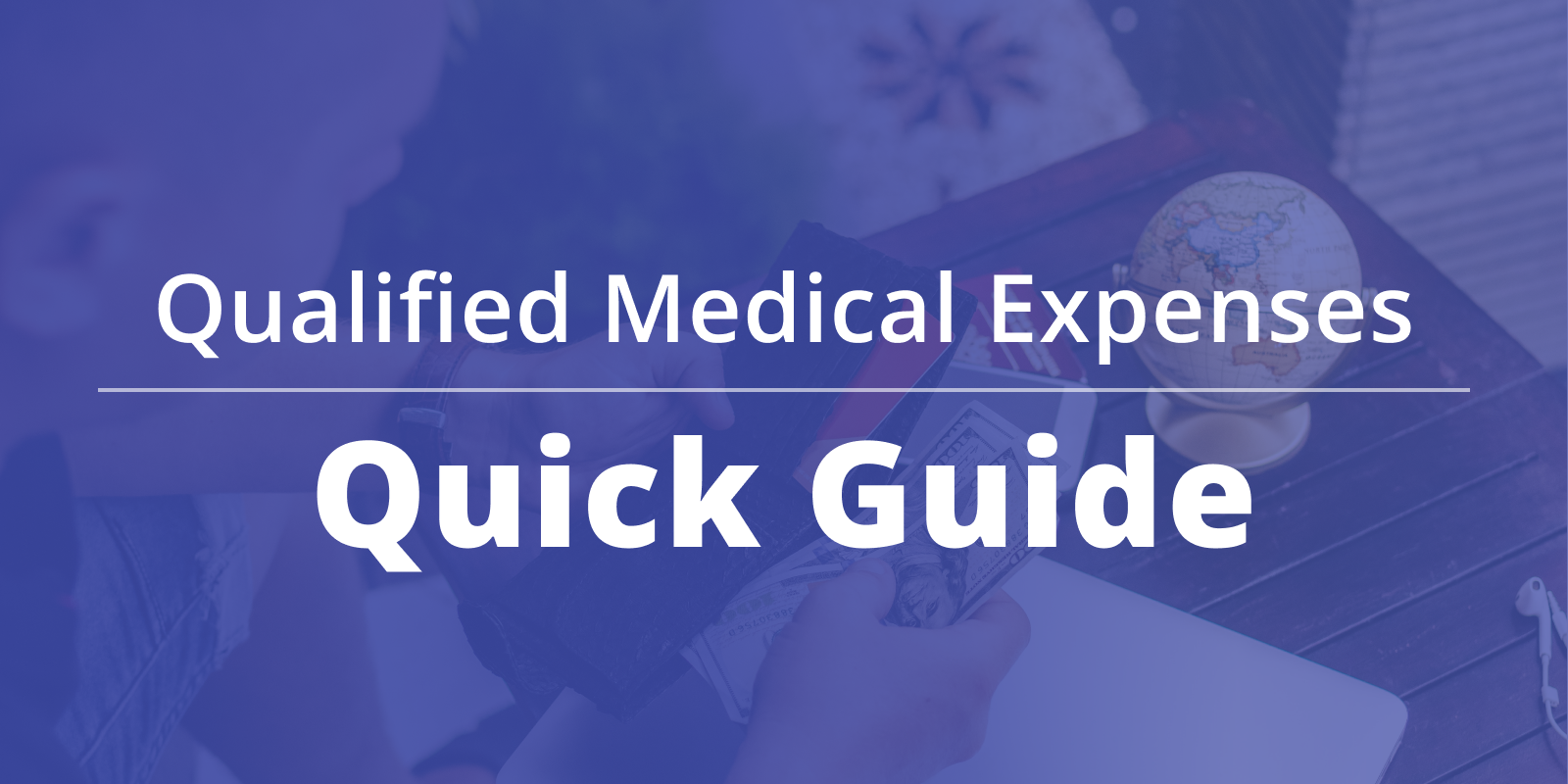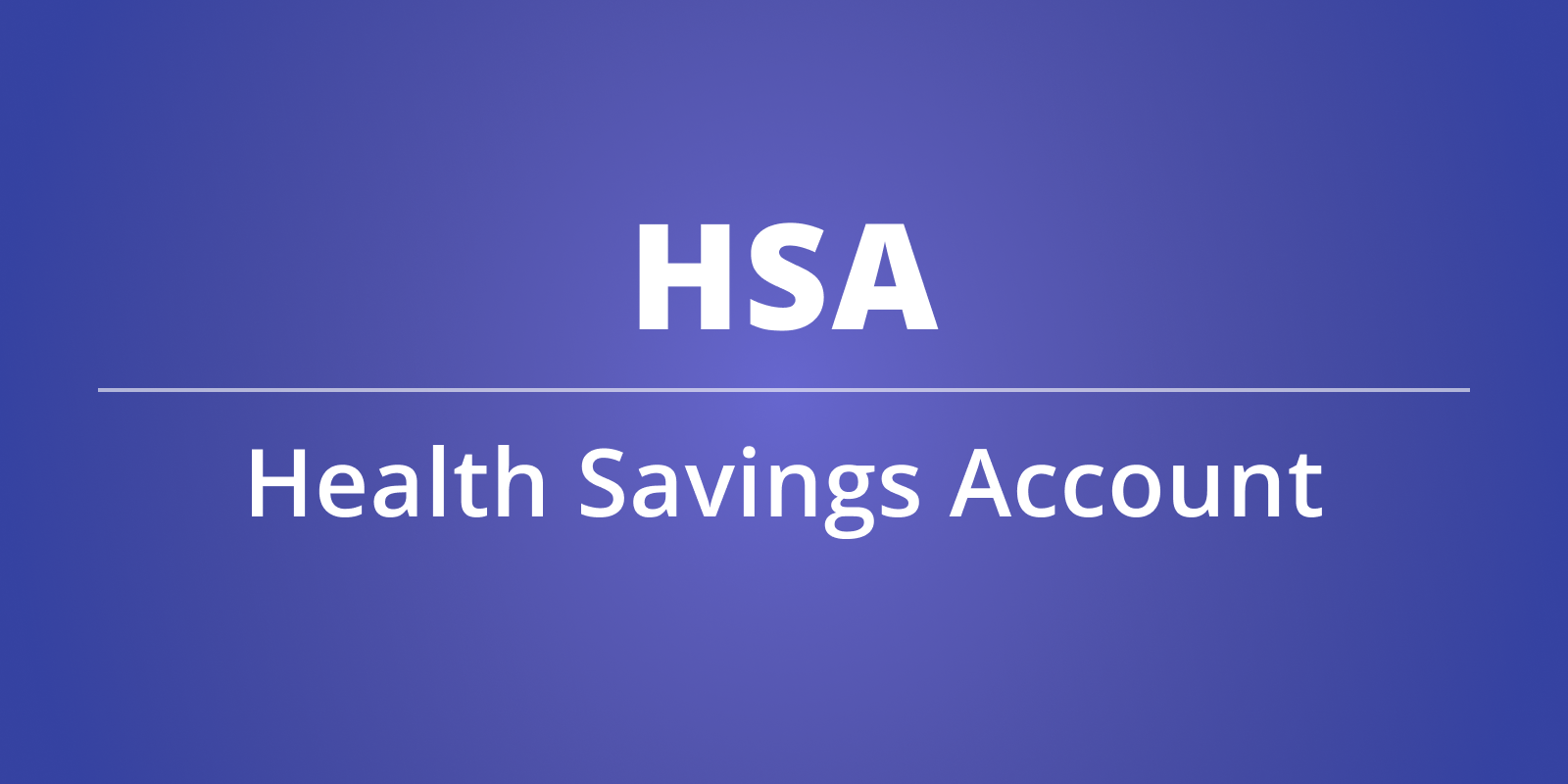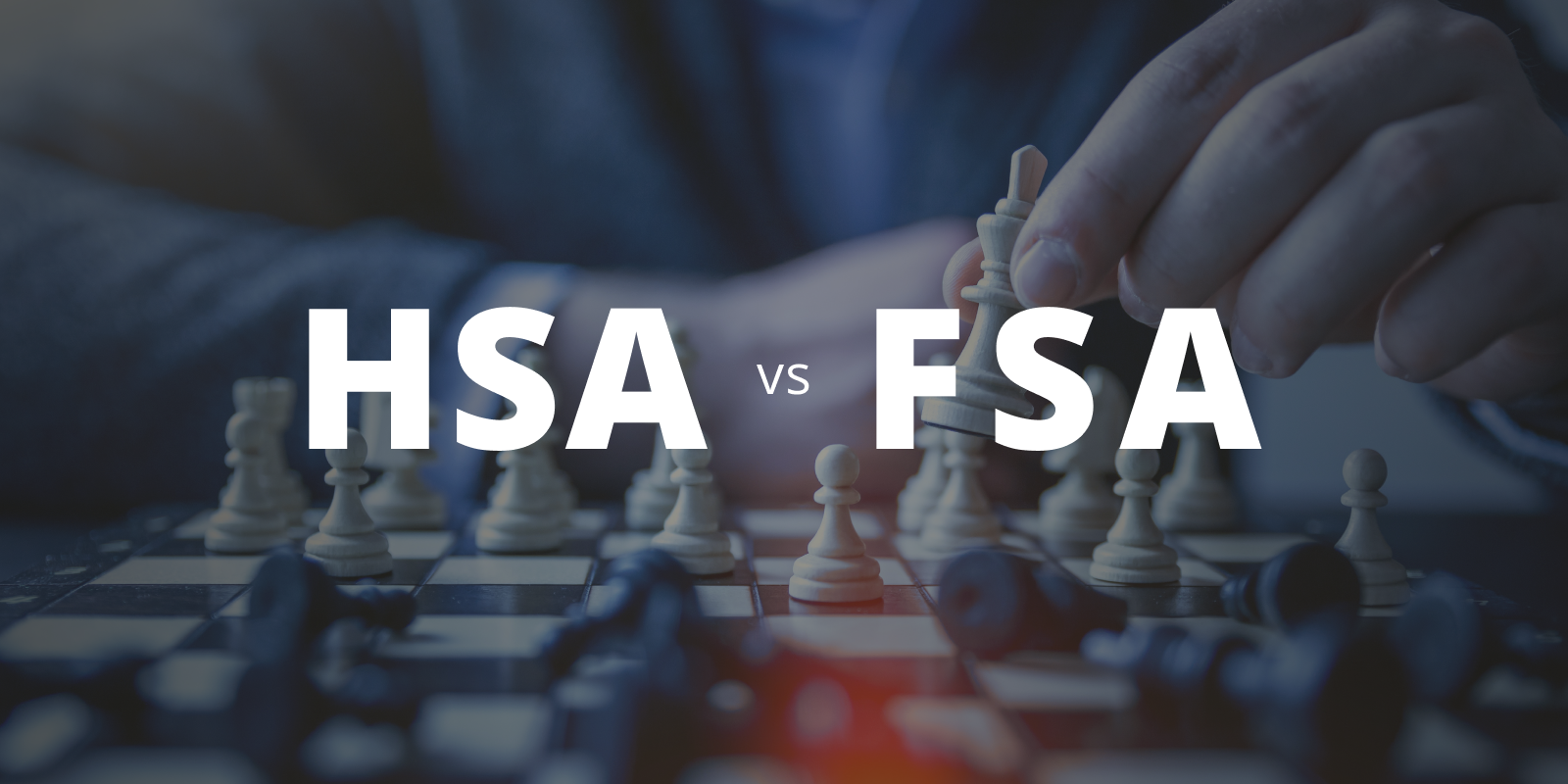What is a Qualified Medical Expense?
Once you open a Health Savings Account (HSA) and begin making contributions, you can use the money to pay for medical expenses tax-free. This money can be used for you, your spouse, or your dependents. The IRS considers medical expenses as “costs of diagnosis, cure, mitigation, treatment, or prevention of disease.” They do not consider costs that are merely beneficial to health, such as vitamins or a vacation as a qualified expense.
Once you open a Health Savings Account (HSA) and begin making contributions, you can use the money to pay for medical expenses tax-free.
Examples of Common Qualified Medical Expenses for an HSA
The list below is not all-inclusive, and the IRS does update their qualified medical expenses from time to time. You can find a complete list on their website: www.irs.gov in IRS Publication 502.
As always, please remember to consult your tax advisor:
- • Acupuncture
- • Annual Physical Exam
- • Artificial Limb
- • Artificial Teeth
- • Bandages
- • Body Scan
- • Chiropractor
- • Contact Lenses
- • Crutches
- • Dental Treatment
- • Diagnostic Devices
- • Eye Exam
- • Eyeglasses
- • Eye Surgery
- • Fertility Enhancement
- • Hearing Aids
- • Home Care
- • Hospital Services
- • Laboratory Fees
- • Long Term Care
- • Nursing Services
- • Operations
- • Optometrist
- • Physical Therapist
- • Prescription Medicine
- • Psychiatric Care
- • Special Education
- • Therapy
- • Wheelchair
- • X-rays
In January 2020, there were essential updates made to HSA’s with the CARES Act. For example, you no longer need a doctor’s note for OTC medicines.
Examples of Ineligible Medical Expenses for an HSA
- • Cosmetic Surgery
- • Dancing Lessons
- • Electrolysis or Hair Removal
- • Funeral Expenses
- • Gasoline
- • Health Club Dues
- • Meals
- • Personal Use Items
- • Swimming Lessons
- • Teeth Whitening
When you use the money in your HSA account for anything other than qualified expenses, the amount will be taxable. If you are under 65, you need to pay an additional 20 percent.








